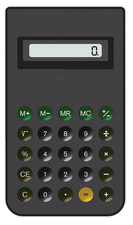Well armed is well prepared when it comes to preparing your federal tax return, so the more information and documentation you have on hand before you begin, the quicker and easier the process will be. You don’t want any errors that might leave you open for an IRS audit or assessment of penalties.
 What does my accountant need to know about my personal information?
What does my accountant need to know about my personal information?
Have you had any major changes in your personal life? If you were married, separated or divorced, you need to tell your accountant as this can impact your filing status. If you were married and file jointly, your tax burden is likely to be lower than if you are married and file separately.
If you are unmarried and have dependents, you may be able to file as head of the household, which also usually results in a lower tax rate.
Giving birth to a child, adopting a child, or having a relative such as an elderly parent move in with you, also influences how many dependents you can claim.
What kind of documentation do I need?
There are a whole stack of documents you need to back up your claims on your tax returns. If you are employed, you should receive a W-2 to document wages, salaries and tips. If you’re self-employed, you should receive 1099s. You should also get 1099s for other types of income, like interest and dividends.
If you have investments you should bring any brokerage statements, as well as any documentation of housing deductions, such as mortgage interest and taxes.
What deductions can I take?
Deductions vary widely, based on your personal situation. Make sure you don’t overlook things like charitable contributions, or mileage if you drive your car to do volunteer work.
If you’re self-employed, you can deduct everything from your new computer to the pens you use, along with a portion of your home if you have dedicated office space.
You also may be able to deduct energy-efficient home improvements, or losses due to a natural disaster.
The best rule of thumb is to keep track of income as it comes in the door and expenses as they go out the door to make it easier when tax time rolls around.
More Tax Questions? Browse Answers or ask tax preparation questions online.
Related Articles
->How Do You Find the Right Tax Preparer
->2011 Personal Tax Preparation Changes
->What are my chances of being audited by the IRS?
->What Happened with the Personal Tax Breaks that were Set to Expire?
->What Should I Know to Avoid the Alternative Minimum Tax?
->Prepare for New Cost Basis Reporting on the 1099 B Form
->Avoid Owing Federal and State Taxes at Year End


